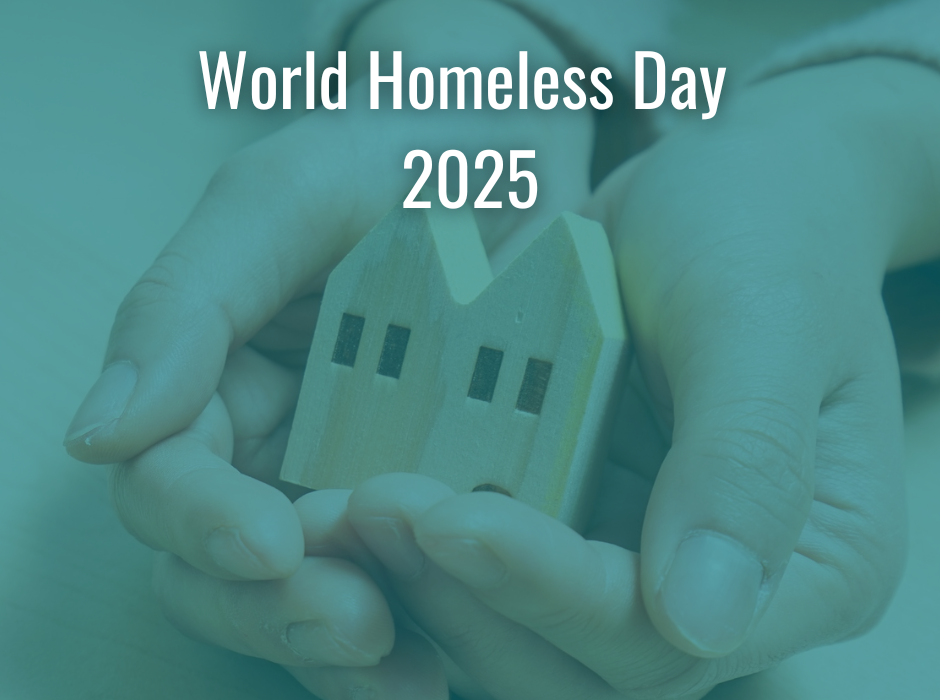
At Turning Point Scotland, we believe that homelessness can and should be prevented whenever possible and when it does occur, it should be as brief as possible and an unrepeated experience. We believe this because we know that an experience of homelessness is not just a number, it’s a life interrupted, relationships strained, and community links broken.
It’s been a few weeks since the annual homelessness statistics for Scotland were released. Unfortunately, as has become the case in recent years, it makes for pretty grim reading. While homelessness applications have gone down slightly (by 1%), the number of open cases has slightly increased (by 1%) and has reached a historic high of 31,695 households.
The statistics also show us an indication of what we have been hearing, anecdotally from services, partners and the public for some time – that, nationally, the number of people at the sharpest end of homelessness in Scotland, those who are sleeping rough, is rising. In Aberdeen and Fife, we work with local authorities to better understand and offer support to those who are sleeping rough, even when they don’t approach the council directly.
Along with all public services, the homelessness system is under immense pressure. Local authorities failed to offer temporary accommodation when a household required it 16,485 times – a 107% increase from last year. Almost all of these breaches of duty occurred in Scotland’s two largest cities, Glasgow and Edinburgh, where the Housing Emergency is hitting especially hard. Sadly, this will not come as a surprise to people working in homelessness and prevention services. People often must request temporary accommodation – a safety net that everyone experiencing homelessness has a right to – multiple times before it’s provided.
Every day, Turning Point Scotland works with people who are experiencing or at risk of homelessness and we see how the system has been stretched to breaking point and beyond over recent years. Because of this, is often failing those who are most in need of support, at one of the most stressful times of their life. This shows up in the figures – the number of people sleeping rough, the length of time spent in temporary accommodation, the number of times temporary accommodation is not offered are all increasing at an uncomfortable rate. But what really matters is the people, the households represented by each number. One person sleeping rough on our streets, one household being turned away from temporary accommodation that they are entitled to, one child not having access to their parent because they are in unsuitable accommodation is one too many.
The system is broken; it is failing people and more of the same just won’t do. That’s why at Turning Point Scotland, we are trying to do things differently.
Housing First and Other Housing Options
Turning Point Scotland led the first Housing First pilot in Scotland in October 2010. This was then seen as a radical new approach to supporting people with multiple support needs. It is now a mainstream and evidence based approach – and at Turning Point Scotland, we are proud to continue to deliver Housing First services across Scotland. We know that high fidelity to the model is crucial to better outcomes for the people we support. But we also know from experience that fidelity is fragile. That’s why we are calling for national conversation on what our ‘red lines’ are in terms of delivery and categorisation of support as Housing First and how we can continue to protect this unique approach.
However, 15 years on, we recognise that Housing First doesn’t work for everyone. There is a small group of people for whom Housing First is not appropriate or is not wanted. We are now looking at addressing this gap in provision with another housing option – settled supported accommodation. Turning Point Scotland have created a proposal based on the Shared Spaces research and the Task and Finish Group report on Supported Accommodation and are speaking to several local authorities with a view to developing and commissioning a service that addresses a critical gap in provision for the small but important group of people for whom Housing First is not the answer.
Whole Systems Approach to Preventing Homelessness
We know that we are not going to resolve homelessness by focussing on service delivery alone, we need to change the wider system reviewing what helps and hinders our action to prevent homelessness happening in the first place. This is why T is working with Fife Council to develop a whole system approach to preventing homelessness. This is a four year project, where we are taking an iterative approach to learning, identifying barriers and making changes using a whole systems approach. We have employed two Community Navigators who are working with people and organisations to highlight where people run into issues or need help to access support and, importantly, highlighting these areas so that we can remove barriers and make the system easier for anyone to access and to navigate.
For this year’s World Homeless Day, Turning Point Scotland is thinking about the people behind the numbers – and how we can design and deliver a better system that helps to prevent homelessness before it happens, and to ensure that the crisis of homelessness is brief and unrepeated.
Because People Matter.

